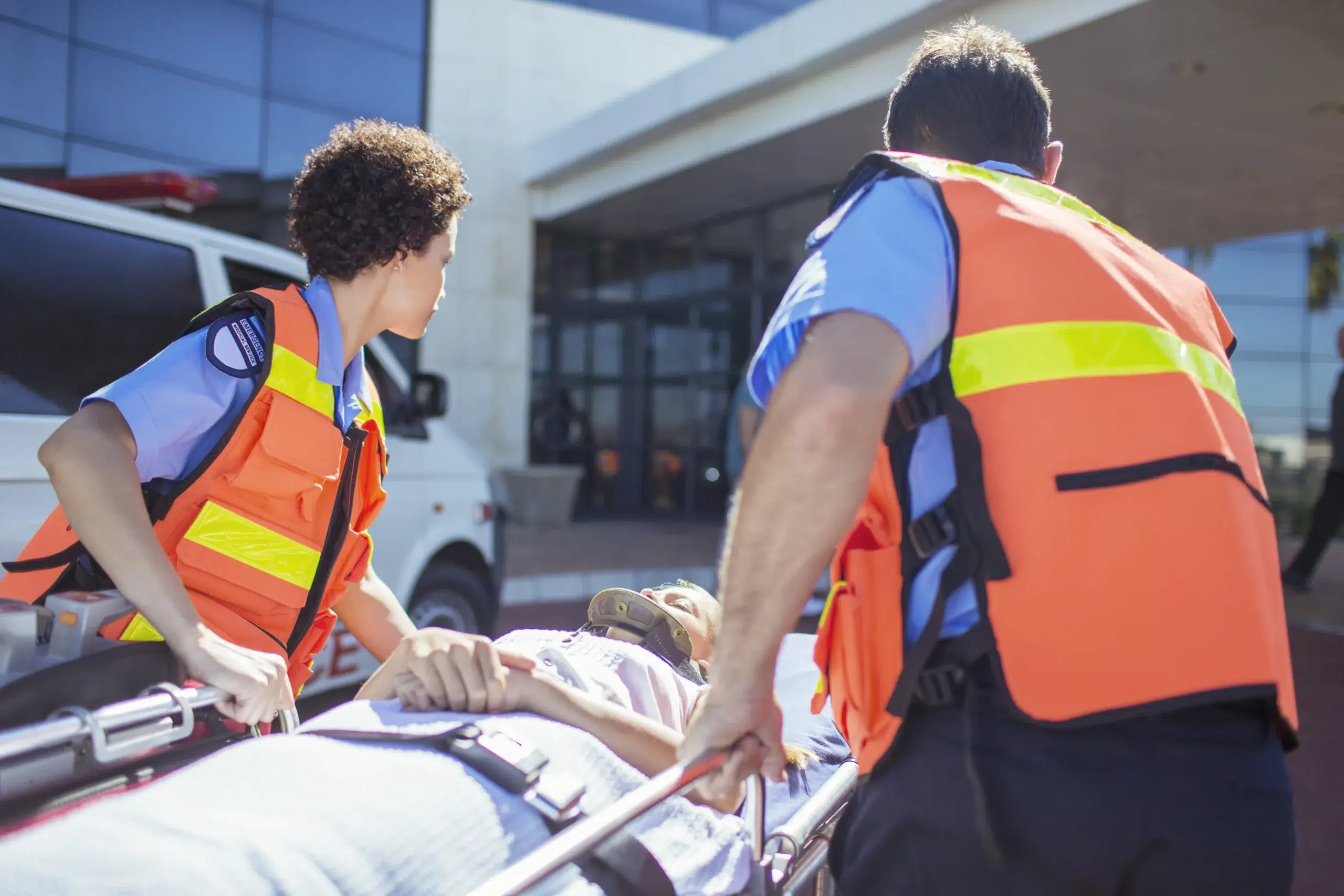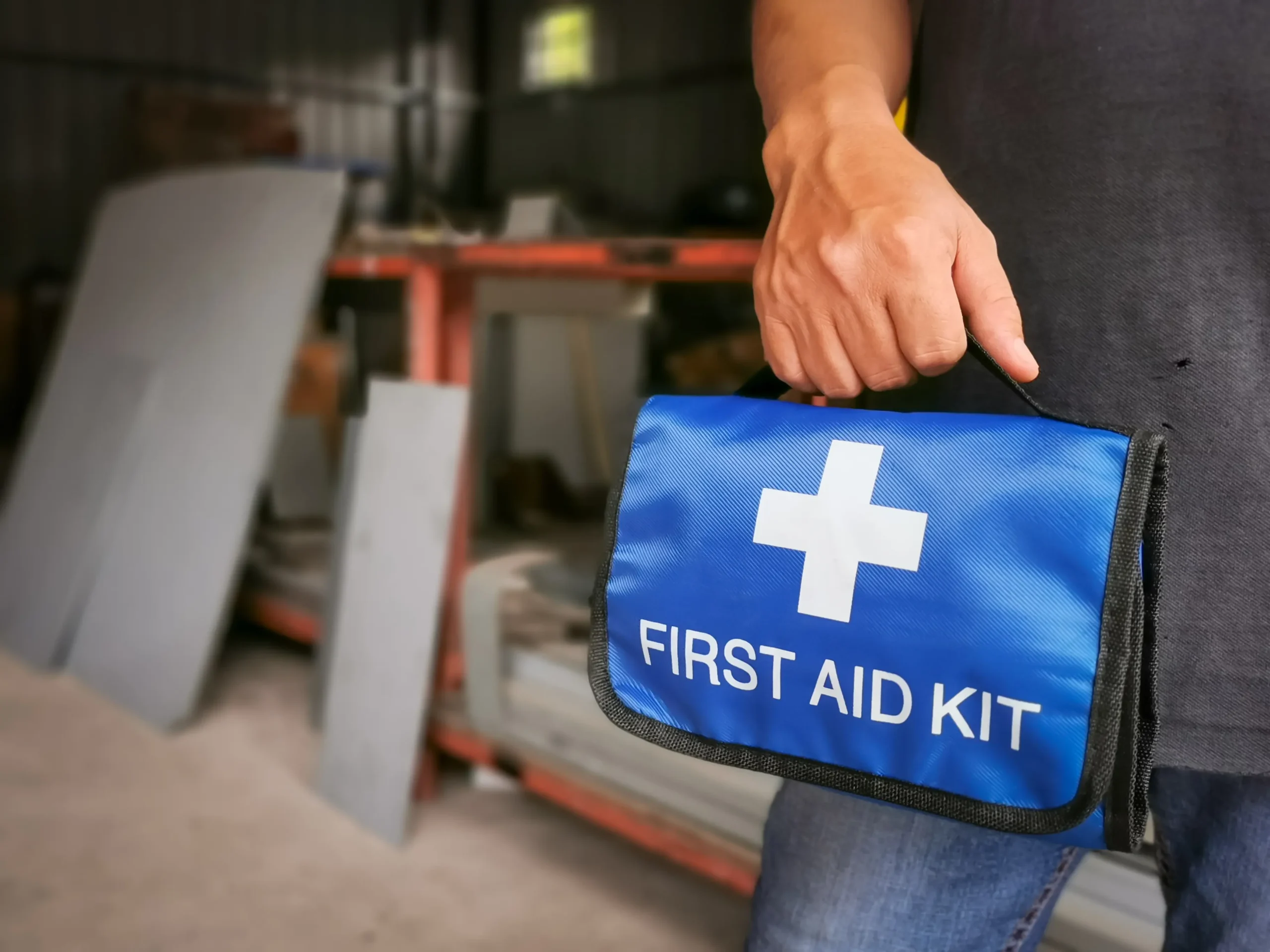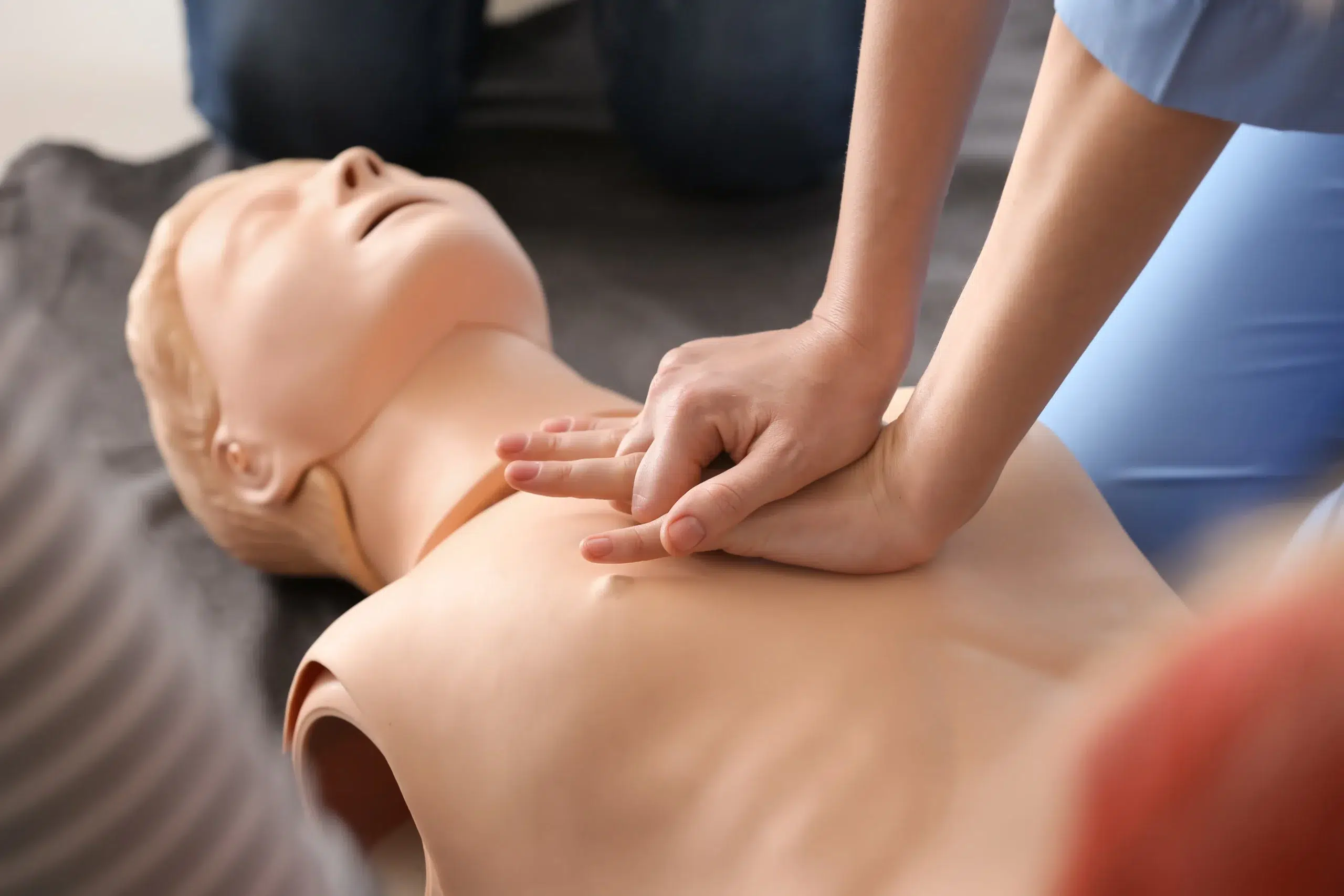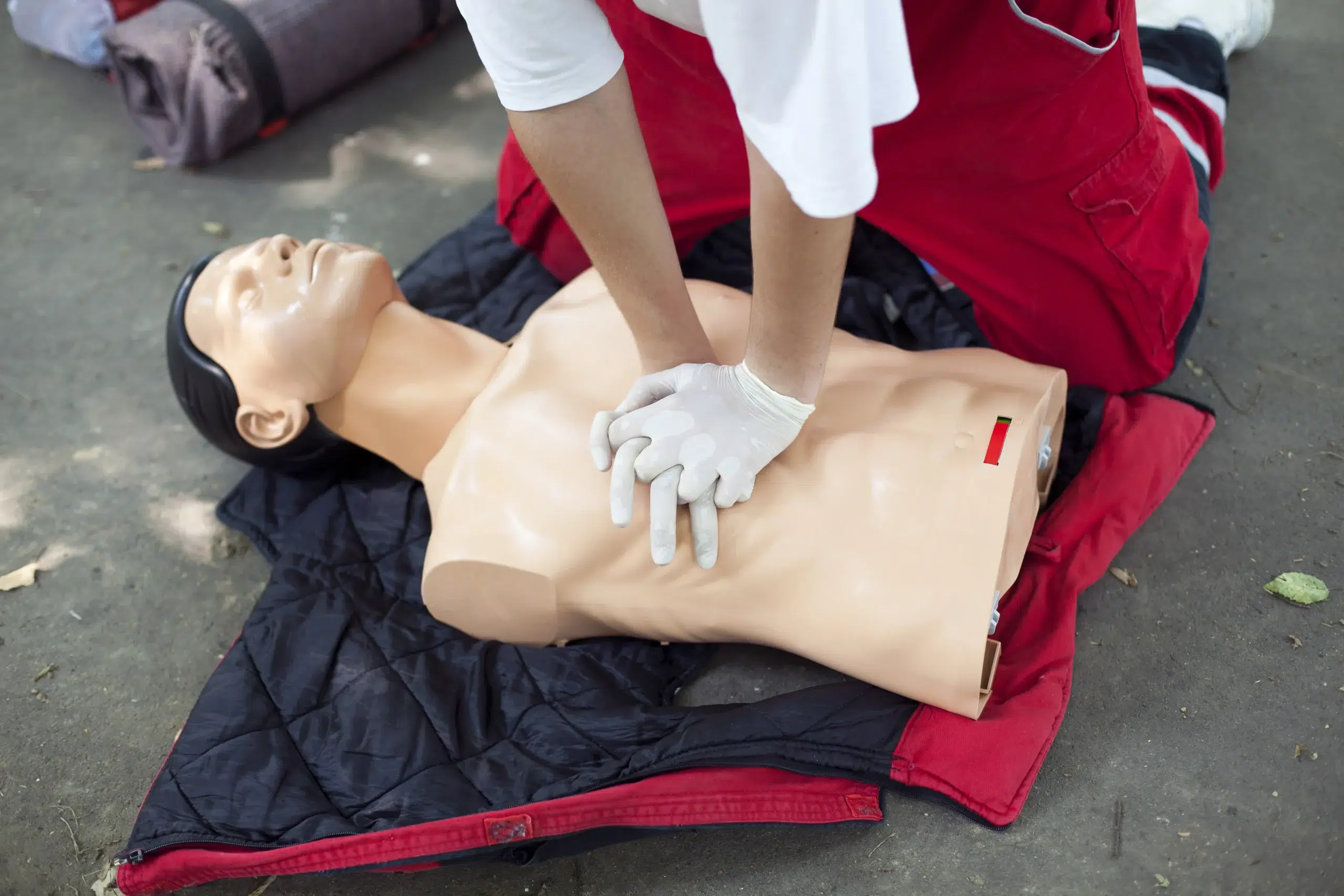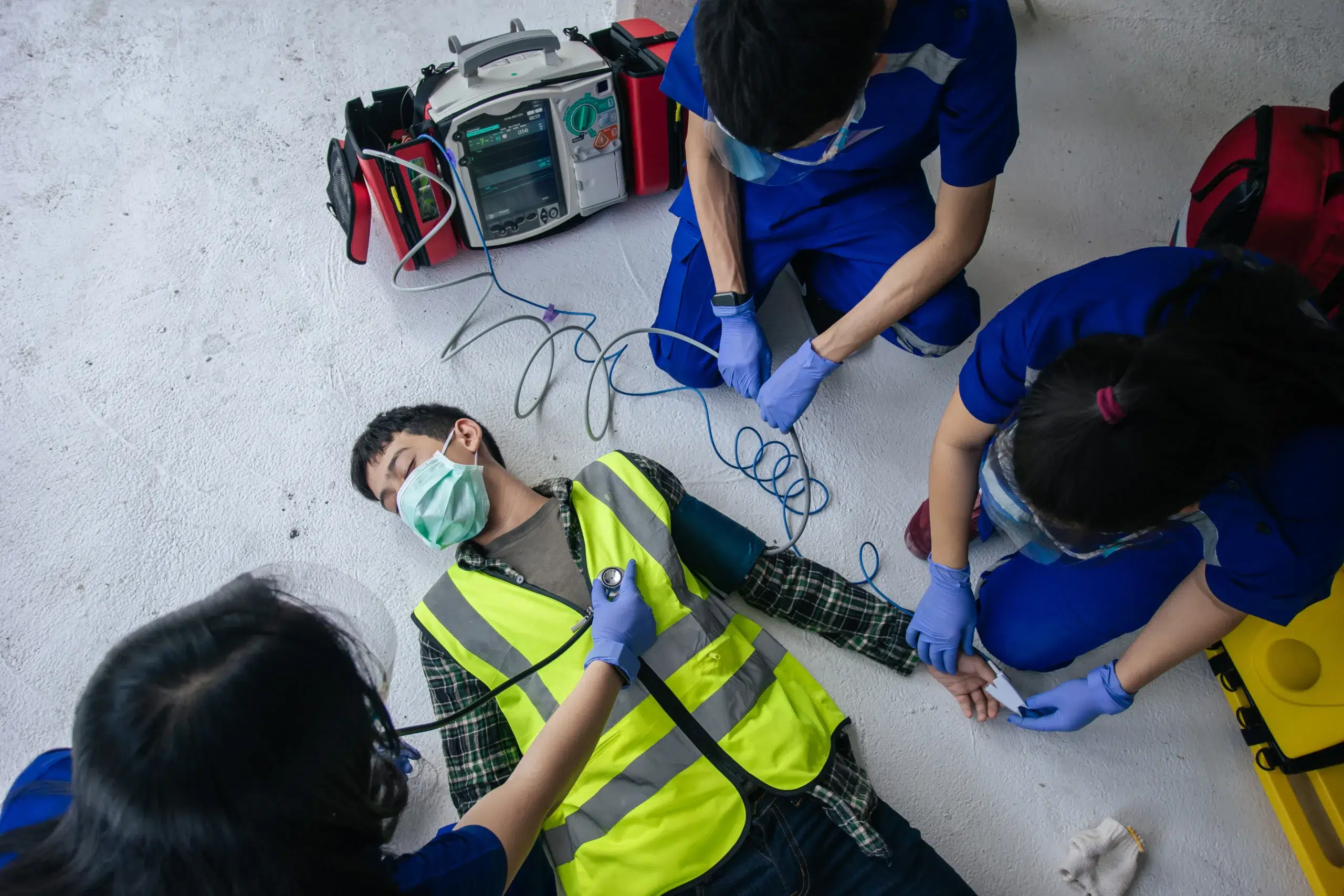Working with children is a rewarding experience, but it also comes with a huge responsibility. As a caregiver, you want to feel prepared for anything, especially when it comes to the health and safety of the little ones in your care. That’s where Pediatric Advanced Life Support (PALS) certification comes in. PALS training empowers you with the skills to handle pediatric emergencies with confidence. This article breaks down everything you need to know about PALS certification, from understanding its importance to finding online PALS classes in Alameda and staying up-to-date on the latest guidelines. We’ll explore common misconceptions, discuss the benefits of certification, and guide you through the process of finding the right course for you.
Key Takeaways
- PALS certification equips you with advanced life support skills specifically for infants and children. It’s a valuable credential for healthcare providers, childcare professionals, and anyone responsible for the well-being of young ones.
- Online PALS courses offer a flexible, blended learning approach. Learn the material online at your own pace, then demonstrate your skills in a brief, in-person session. This format makes high-quality training accessible to even the busiest schedules.
- Maintaining your PALS certification is crucial for providing the best possible care. Stay current with the latest guidelines and renew your certification every two years to ensure your skills remain sharp and aligned with best practices.
What is PALS Certification?
What is PALS and who needs it?
Pediatric Advanced Life Support (PALS) certification gives you the skills to respond to life-threatening emergencies in children and infants. It goes beyond basic life support (BLS) by focusing on the specialized needs of this age group. PALS training emphasizes early recognition and intervention for respiratory and cardiac arrest, covering everything from airway management to effective resuscitation techniques.
This training is crucial for healthcare professionals working with children, including doctors, nurses, paramedics, and emergency medical technicians. It’s also beneficial for those in childcare settings like daycare providers, school nurses, and camp counselors. Anyone responsible for the well-being of infants and children can gain confidence and competence from PALS certification.
Common misconceptions about PALS certification
There are several misunderstandings surrounding PALS certification. Some believe it’s only necessary for hospital staff, but emergencies can happen anywhere, making PALS relevant for anyone caring for children. Another misconception is that PALS is the same as BLS. While BLS provides a foundation, PALS builds upon it with advanced techniques specifically for pediatric patients. Finally, some think online PALS courses aren’t as valid as in-person ones. While the hands-on skills test must be done in person, the knowledge portion can often be completed online, offering flexibility and convenience. Even experienced healthcare providers benefit from regular PALS training to refresh their skills and stay updated on the latest guidelines.
Where to Find Online PALS Courses in Alameda
Finding the right PALS course can feel overwhelming, but several excellent providers serve the Alameda area. Here are a few options to explore:
Oakland CPR Courses
Oakland CPR Courses offers American Heart Association (AHA) PALS classes designed to equip healthcare providers with the skills to manage pediatric emergencies. They prioritize excellent customer service and competitive pricing, making them a solid choice for those seeking quality training. Check out their PALS course page for more information.
Safety Training Seminars
Safety Training Seminars provides comprehensive CPR and emergency response training, including PALS certification. Their AHA-approved classes are offered daily, providing flexibility for busy schedules. Learn more about their PALS training on their website.
Alameda CPR Classes
Alameda CPR Classes specializes in AHA PALS certification, with classes running daily from 7 am to 6 pm. This makes it easy to fit training into your schedule. Visit their website for additional information on their PALS courses.
Citywide CPR
Citywide CPR offers a blended learning approach to PALS certification, combining online learning with in-person skills sessions. This format allows you to learn the material at your own pace before demonstrating your skills in a hands-on setting. Explore their blended learning PALS course to see if this approach is a good fit.
How Long Does an Online PALS Course Take?
Earning your PALS certification is a two-step process: online coursework and an in-person skills session. Let’s look at the time involved for each.
Self-paced online learning component
The online portion of a PALS course is flexible, allowing you to learn at your own pace. Plan for about 3 to 6.5 hours to complete the online modules. The exact time will depend on the course provider and your prior knowledge. For example, the online portion of the American Heart Association’s PALS course usually takes 3–4 hours. This self-directed format lets you fit the training into your schedule, studying whenever and wherever it’s convenient for you.
In-person skills testing session
After you finish the online coursework, you’ll schedule an in-person skills session to demonstrate what you’ve learned. This hands-on session uses a voice-activated mannequin and typically takes 30–40 minutes. Instructors are available by phone if you need assistance during testing. Remember to complete your skills test within 90 days of finishing the online portion.
Total time commitment
From beginning to end, the entire PALS certification process, including online learning and the in-person skills check, usually requires around 6.5 hours. This timeframe offers thorough training while respecting your busy schedule. Oakland CPR Courses provides a streamlined process to help you get certified quickly and efficiently. Check out our PALS course options to learn more.
How Much Does PALS Certification Cost in Alameda?
Knowing the cost of PALS certification helps you budget accordingly. Let’s break down the typical expenses.
Average Price Range
The average cost for PALS certification in Alameda hovers around $290. This usually covers the online course, the required in-person skills testing, and your official PALS provider card issued the same day you complete the course. Expect the online portion to take about three to four hours, with an additional 30–40 minutes for the skills check. For a real-world example of this pricing, take a look at Alameda CPR Classes.
Available Discounts and Promotions
Looking to certify a group? Many training centers in Alameda offer discounts for group registrations and on-site training. This can be a smart way to save money if you’re coordinating training for multiple people or your entire workplace. Bay Area CPR is one example of a provider offering these kinds of discounts.
Price Match Guarantees
Finding the best value is important. Some providers understand this and offer price match guarantees. They’ll match any valid lower price you find for an equivalent American Heart Association PALS course in Alameda. This commitment to affordability makes PALS certification accessible to more people. Check with providers like Alameda CPR Classes to see if they offer a price match.
Benefits of PALS Certification
Choosing to pursue PALS certification offers several key advantages, impacting both your career and your ability to provide critical care. Let’s explore some of the most significant benefits.
Improve Pediatric Emergency Care Skills
PALS certification equips you with the knowledge and skills to confidently manage pediatric emergencies. You’ll learn to recognize and respond to life-threatening situations involving infants and children. This specialized training covers a range of critical skills, from assessing a child’s airway to administering medications and providing advanced life support. These skills are invaluable for any healthcare provider working with young patients, allowing you to provide effective and timely interventions when seconds count. For more information on the specifics of PALS training, visit our PALS page.
Advance Your Career
Holding a PALS certification demonstrates your commitment to high-quality pediatric care. It’s a valuable credential that can open doors to new opportunities and career advancement. Many healthcare facilities require PALS certification for specific roles, making it essential for professionals seeking positions in pediatric emergency care, intensive care units, and other specialized settings. Earning this certification enhances your skills and makes you a more competitive candidate. If you’re looking to train a group, our group discounts can make it more affordable.
Meet Regulatory Requirements
In many healthcare settings, PALS certification isn’t just beneficial—it’s mandatory. Numerous hospitals, clinics, and other healthcare facilities require their staff to hold current PALS certification, especially those working directly with children. This requirement ensures a baseline level of competency in pediatric emergency care, safeguarding young patients and maintaining high standards of care. By obtaining your PALS certification, you meet these crucial regulatory requirements and demonstrate your preparedness to handle pediatric emergencies effectively. We also offer a low price guarantee to ensure you’re getting the best value for this essential training.
What to Expect in an Online PALS Class
Online PALS classes offer a convenient way to learn the skills you need to respond to pediatric emergencies. They typically involve online coursework combined with an in-person skills session. Here’s a closer look at what to expect:
Course content and curriculum
The curriculum for an online PALS course covers essential topics for managing pediatric emergencies. You’ll learn systematic assessment, effective interventions, and post-resuscitation care. Expect to study core concepts like airway management, rhythm recognition, and team dynamics. The PALS course content builds upon a foundation of pediatric advanced life support knowledge and emphasizes critical thinking and rapid response.
Interactive simulations and videos
Online PALS courses often use interactive elements to make learning more engaging. Many providers use simulations and videos to illustrate real-world scenarios, allowing you to practice your decision-making skills in a safe environment. These tools can help you understand how to apply what you’re learning and build confidence.
Blended learning options
The flexibility of online learning makes it easier to fit PALS training into your busy schedule. Many providers offer blended learning that combines online modules with in-person skills sessions. This approach lets you complete the coursework at your own pace and then demonstrate your proficiency during a hands-on evaluation. This combination of online learning and practical application creates a well-rounded learning experience.
Choose the Right Online PALS Class in Alameda
Factors to Consider
Finding the right online PALS class means thinking about a few key things. What’s your learning style? Do you like going at your own pace or do you prefer a more structured environment? Think about the course format, too. Some are entirely online, while others combine online modules with in-person skills sessions. Location and scheduling flexibility are also important. Pick a provider with convenient training locations and class times that work for you. Finally, double-check the accreditation. Make sure the course is approved by the American Heart Association so you get a valid PALS certification card. PALS classes in Alameda is a good starting point for your search.
Compare Providers
Several organizations offer PALS certification in Alameda. Safety Training Seminars is one option, providing AHA-approved courses with classes offered daily. Compare providers based on course content, instructor experience, and student reviews. A program with comprehensive training materials, experienced instructors, and positive feedback from past participants will give you a solid educational experience.
Employer Requirements
Before signing up for a PALS course, check your employer’s requirements. Many healthcare facilities in Alameda require PALS certification for jobs involving pediatric care. Emergency medical technicians, nurses working in pediatric units, and childcare providers often need this certification. Understanding these requirements ahead of time helps you choose a course that aligns with your career goals and workplace standards. Alameda CPR classes has more information on employer requirements and PALS certification.
Register for Online PALS Classes
Getting your PALS certification is easier than you think, especially with online learning. Here’s how to register for online PALS classes:
Select a provider
First, find a reputable training center offering AHA-certified PALS courses. For residents of Alameda, Oakland, and Berkeley, Oakland CPR Courses offers various courses, including PALS, and often has group discounts available. They are known for excellent customer service and a low price guarantee. Choosing a provider that fits your schedule and learning style is essential.
Complete the online module
Most online PALS courses use a blended learning format. This means you’ll complete a self-paced online module before attending an in-person skills session. The online portion typically involves interactive videos and simulations covering essential PALS concepts and procedures. Expect to spend a few hours working through these materials. This flexible format lets you learn at your own pace and review material as needed.
Schedule and prepare for your skills test
After finishing the online module, schedule your in-person skills test. This hands-on session allows you to demonstrate your skills using a voice-activated mannequin. Instructors are available to provide feedback and guidance. Schedule your skills test within the timeframe specified by your provider (often within 90 days of completing the online module). Review the online materials beforehand to refresh your knowledge and ensure you’re prepared.
Maintain Your PALS Certification
Keeping your PALS skills sharp is crucial for providing the best possible care. This section covers how to stay current with your certification and the latest guidelines.
Renewal Requirements and Process
PALS certification is valid for two years. This means you’ll need to renew it every two years to maintain your qualifications. The renewal process typically involves a refresher course covering the latest guidelines and updates to pediatric advanced life support techniques. Check with your certifying organization, such as the American Heart Association, for specific renewal requirements. They offer resources and information to guide you through the process.
Continuing Education Options
Staying up-to-date on the latest advancements in pediatric care is easier than ever with flexible continuing education. Online PALS certification courses offer a convenient way to learn at your own pace, fitting your studies around your busy schedule. Many providers use a blended learning approach where you complete the theoretical portion online and then schedule a hands-on skills check at a local training center. This combination ensures you have both the knowledge and practical skills for effective care.
Stay Updated with the Latest Guidelines
Medical knowledge and best practices are constantly evolving. Staying current with the latest PALS guidelines from the American Heart Association is essential for providing high-quality care. They regularly incorporate new research and advancements. Review these updates periodically to ensure your skills and knowledge align with current best practices. Online PALS courses often integrate these updates into their curriculum, using real-world applications to help you learn and apply the latest techniques.
Related Articles
- AHA PALS Classes in Oakland, CA – Oakland CPR Classes
- BLS Certification in Oakland: The Ultimate Guide – Oakland CPR Classes
- CPR Training in Oakland: Your Complete Guide – Oakland CPR Classes
- CPR, BLS, ACLS, PALS, & First-aid Courses in Oakland, CA
- Blog – CPR, BLS, ACLS, PALS, & First-aid Training – Oakland CPR
Frequently Asked Questions
Is PALS certification really necessary if I already have BLS?
BLS is a great foundation, but PALS goes further. It teaches advanced life-saving techniques specifically for infants and children. Think of it as building upon your existing skills to handle the unique challenges of pediatric emergencies. If you regularly work with kids, PALS is a valuable addition to your skillset.
What if I don’t work in a hospital? Do I still need PALS?
Emergencies can happen anywhere, not just in hospitals. If you’re responsible for the well-being of infants and children, whether you’re a childcare provider, a camp counselor, or even a parent, having PALS training can make a real difference in a critical situation.
How can I fit PALS training into my busy schedule?
Many PALS providers offer flexible options, including blended learning. This combines online coursework with an in-person skills session, allowing you to learn the material at your own pace and then demonstrate your skills in a practical setting.
Are online PALS courses as good as in-person classes?
Online PALS courses offer a convenient way to learn the material, often through interactive simulations and videos. However, you’ll still need an in-person skills session to demonstrate your proficiency and receive your certification. This blended approach combines the flexibility of online learning with the hands-on practice of traditional classes.
How much does PALS certification cost, and are there any ways to save money?
PALS certification costs vary, but many providers offer discounts for group registrations or price matching. It’s worth checking with different providers to compare prices and find the best value. Some also offer discounts for groups, so if you’re training with colleagues, you might be able to save.
